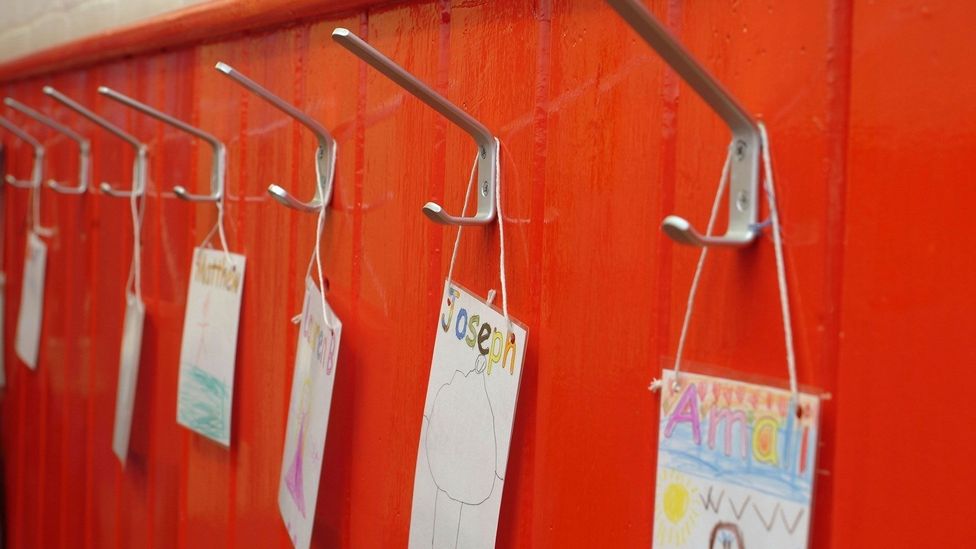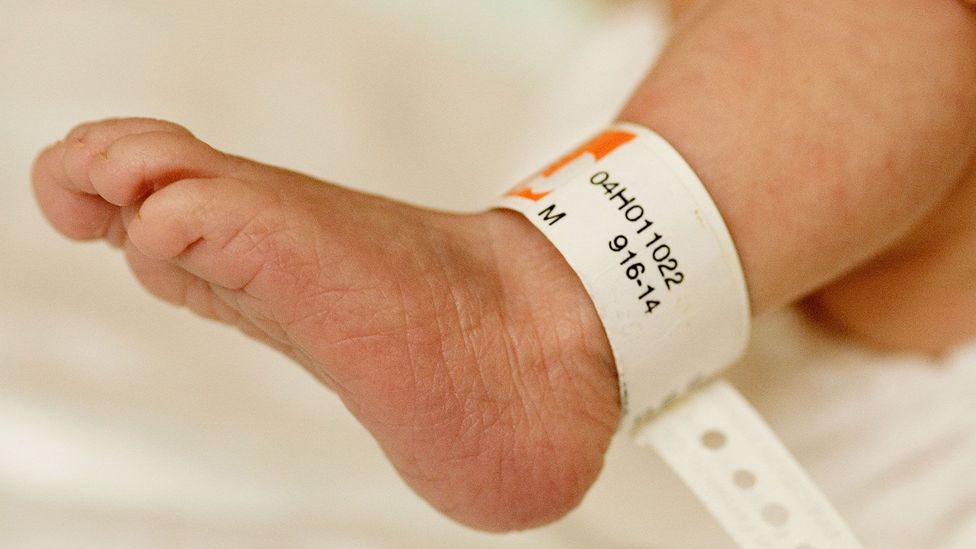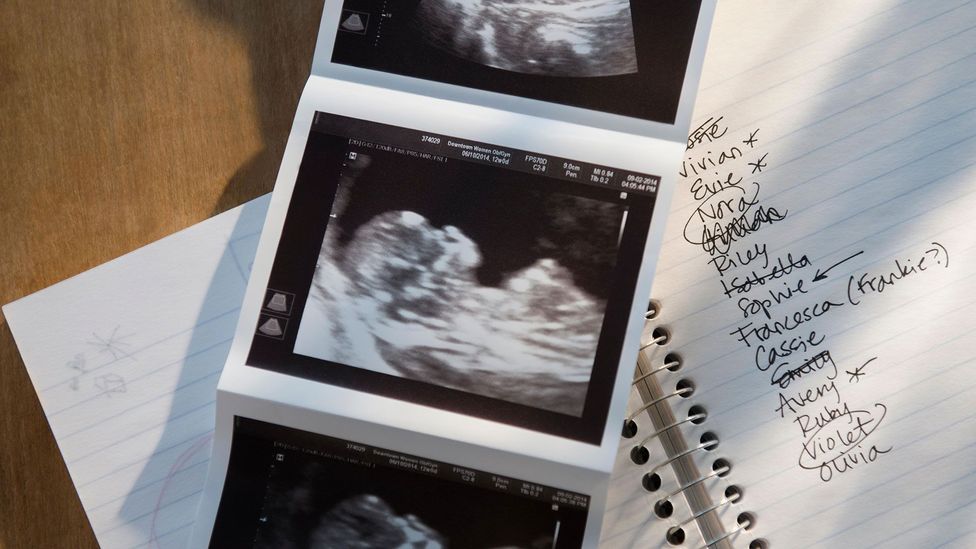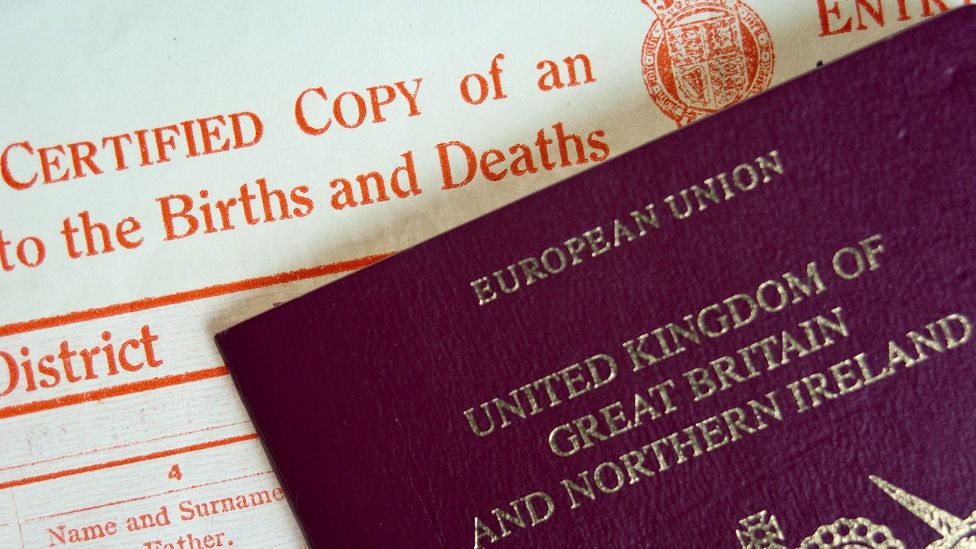Why Do People Make Up Names for Their Babies
Why millennials are choosing strange baby names

Unusual and truly unique names are becoming far more common – and the trend reflects some profound shifts in our culture.
P
Parents may agonise over the name of their latest inflow – but rarely exercise they expect the decision to cease up in a courtroom. Over the final few years, however, judges across the world have had to intervene and challenge parents' choices: Nutella, which was banned in France; Cyanide, which was outlawed in the UK; and peradventure most bizarrely, the girl called 'Talula Does the Hula From Hawaii' in New Zealand, who was put under court guardianship and then that she could pick a more traditional name.
"Names are at the core of our identity and are besides related to important legal identities, how we are identified by states and governments," says Jane Pilcher, a sociologist at the University of Leicester. "They are besides part of our social cultural identity. They marking who we are in gender terms, ethnic terms and other means."
And nonetheless parents are too increasingly giving children more unusual, or unique names. A study conducted in 2010 by Jean Twenge, psychology professor at San Diego State University, examined the names of 325 million American babies built-in between 1880 and 2007 and found that common names take decreased in popularity since 1950. For example, while more than 30% of boys were given a meridian-10 proper name in 1950, less than 10% of boys were given a superlative-10 proper name in 2007.

Our name is the nearly bones part of a child'southward identity - and recently, more than and more than parents have opted for truly unique options (Credit: Alamy)
Twenge notes that people are coming upward with new ways to give unique names, including unique spellings of more popular names. In America for instance, an unusual spelling of Jaxson, an otherwise top-fifty name, is becoming more prevalent, while in the Uk, it has become trendy to requite kids a double-barrelled first name, like Amelia-Rose.
The trend also doesn't seem limited to the U.s. or UK. A contempo study in Nippon examined naming practices betwixt 2004 and 2013 and institute that Japanese parents created unique baby names by pairing traditional Chinese characters with uncommon pronunciations. In another, researchers analysed the names given to children in a German language boondocks. They institute that in 1894, 32% of names were unique, meaning they weren't given to anyone else in the sample. By 1994, 77% of the sample had unique names unlike anyone else the same year.
What is causing these changing shifts – besides the random whims of fashion? And what are the furnishings it may have on future generations? Psychologists and sociologists studying the phenomenon are finding some surprising answers.
Frontier mindsets
1 answer is that it represents a growing cultural shift toward individualism. "As American civilisation has get more than individualistic, parents have favored giving children names that help them stand out – and that means more unique names and fewer common names," Twenge says. The authors of the Japanese and German language come to similar conclusions: we all want to stand up out from the crowd.
Some further clues come from the work of Michael Varnum, an assistant professor of psychology at Arizona Country University, who has tried to tease out what has led to increasing individualism in specific regions. In one written report, he examined the prevalence of common names in different geographic locations of the United States, and found that people are less probable to give their children common names in regions that were more recently settled by Europeans, including the Mountain Due west and Pacific Northwest and states like Colorado, Nevada, Oregon and Wyoming.

Unusual names are more common among individualistic societies (Credit: Alamy)
They saw the same naming practices in Canada, with less common names in western regions of Canada than in the east, which experienced earlier settlement. It's a similar pattern in Australia and New Zealand.
"What we're seeing is the legacy of frontier settlement," he said. "There's a certain amount of self-choice that goes into it. So people who make up one's mind to go to a new and somewhat dangerous and unknown place are probably a little chip more cocky-reliant and a little less conformist. And nosotros see the traces of that in the naming practices of the present day."
Wealth may also play a role. In a more than recent study, for instance, Varnum linked more unique naming practices with improving economic conditions. Increasing socioeconomic structures preceded expressions of individualism, including more unique naming practices.
Varnum points to studies showing that wealthier people tend to be more self-focused and to prefer uniqueness over conformity. He thinks this may take made sense in our evolution. "When y'all have lots of resources and are less worried virtually scarcity, you lot can beget to stick out a trivial bit. In fact it may be advantageous to go abroad from the oversupply," he says. "There may be more opportunities to introduce, for case." When times are rough, withal, it pays to play it safety. "If you lot don't take a lot of resources or wealth, the meliorate strategy might exist conformity and to exercise what most people are doing."
Another contempo study examined naming practices in the United States from 1948 to 2014 and plant more evidence consistent with this theory. Emily Bianchi at Emory University constitute an increment in common names was correlated with lower unemployment rates on both a national and land level.

The simple fact of your name may alter your chances of entering professions such as medicine or the police (Credit: Alamy)
Given the importance of our name in forging our identity, could these choices alter your path in life. There is now some evidence this may be the example.
One study indicated that names that are easier-to-pronounce are judged more positively and were correlated to higher positions at law firms. Your name can fifty-fifty bear upon your romantic prospects. Another study found for example that people with less-common names were more likely to be neglected past visitors on an online dating site.
There is also a growing trend to selection names that blur gender boundaries, and in 2005, David Figlio, the director of the Found for Policy Inquiry at Northwestern University analysed pairs of sisters to decide how this might influence their chosen area of study. He first analysed thousands of names to determine the likelihood certain phonemes and structures will be given to boys and girls. For case, while the name Ann is nigh always likely to be given to a girl, the spelling Anne, is fifty-fifty more than linguistically feminine.
Women'southward names also tend to exist longer, with Anastasia being one of the most linguistically feminine names. "I constitute that the more linguistically androgynous a girl's name, the more likely it is she will pursue math and science coursework compared to her sis," Figlio said. The effect might deport on into adulthood. Another study showed that women with names that are more linguistically masculine were more likely to accept successful careers as lawyers.
For boys it may be a different story. Figlio found for example, that having centre-schoolhouse-aged boys with names that are traditionally given to girls in class led to higher rates of disruption, peculiarly if at that place was a girl in the class with the same proper name.

In some countries (including Wales) courts have ruled confronting parents' choice of name for their child (Credit: Alamy)
"In most English-speaking cultures, names are very sexual practice-typed. About 97% of forenames clearly point whether the child is male or female," said Pilcher. "Boys who accept girls' names can exist damaged by that, because to be feminine for a boy is considered a bad matter. Simply a girl might actually exist able to benefit from having a more than typically masculine name, because throughout history masculinity has been the more highly valued trait."
Some countries are so concerned about children with unusual names that they are regulated. In Iceland for example, parents must choose a proper noun from an approved government listing. In Germany, names must exist approved and point gender. "The argument is that it may be defaming, embarrassing for the kid and the system needs to protect confronting possible violence against kids," said Gilsson.
Of course, as Figlio points out, our names can only influence our lives to a certain point, and for plenty of people, not at all. "My view is more that we should only be kind of aware of it. We should give our kids names that we beloved but be aware people in society are going to treat them differently based on it."
--
Join 700,000+ Future fans past liking us on Facebook , or follow usa on Twitter , Google+ , LinkedIn and Instagram .
If yous liked this story, sign up for the weekly bbc.com features newsletter , called "If You Only Read 6 Things This Week". A handpicked selection of stories from BBC Futurity, Earth, Civilization, Majuscule, Travel and Autos, delivered to your inbox every Friday.
Source: https://www.bbc.com/future/article/20161221-why-millennials-are-choosing-strange-baby-names#:~:text=One%20answer%20is%20that%20it,common%20names%2C%E2%80%9D%20Twenge%20says.
0 Response to "Why Do People Make Up Names for Their Babies"
Post a Comment